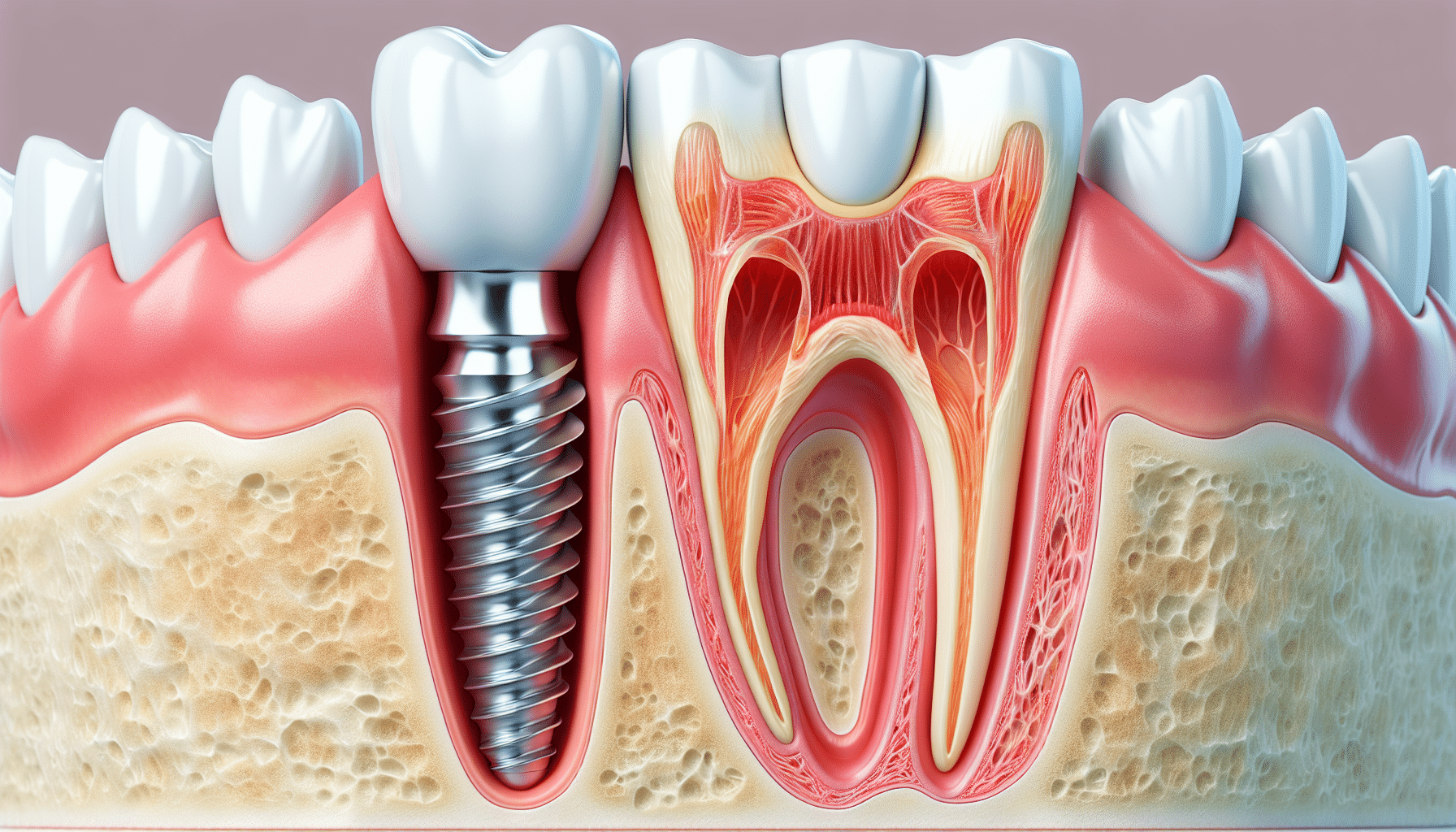The Ultimate Guide To Dental Sense
Table of Contents8 Easy Facts About Dental Sense ShownDental Sense Fundamentals ExplainedLittle Known Facts About Dental Sense.What Does Dental Sense Mean?
are medical tools surgically implanted right into the jaw to recover an individual's capacity to chew or their look. They supply assistance for artificial (phony) teeth, such as crowns, bridges, or dentures. When a tooth is shed due to injury or illness, a person can experience complications such as rapid bone loss, defective speech, or adjustments to eating patterns that result in pain.Dental implant systems include a dental implant body and dental implant abutment and might also consist of an abutment addiction screw. Root canal procedure. The oral implant body is surgically put in the jawbone in location of the tooth's root. The dental implant abutment is generally affixed to the dental implant body by the abutment addiction screw and extends with periodontals into the mouth to sustain the affixed man-made teeth
(https://blogfreely.net/dentalsense1/5eq6ue3fhs)Structure of The Dental Implant System selecting dental implants, talk with your dental provider concerning the potential advantages and dangers, and whether you are a candidate for the procedure. Things to take into consideration: Your general health and wellness is a crucial element in determining whether you are a good candidate for oral implants, for how long it will certainly require to heal, and the length of time the implant might remain in area.
Smoking might influence the recovery process and decrease the long-term success of the implant. The recovery procedure for the dental implant body may take numerous months or longer, throughout which time you typically have a short-lived joint in place of the tooth. the dental implant procedure: Carefully adhere to the oral hygiene guidelines offered to you by your dental provider.
The 8-Minute Rule for Dental Sense
Implant failing can cause the requirement for an additional surgery to repair or replace the implant system. Restores the ability to chew Restores cosmetic appearance Aids maintain the jawbone from diminishing due to bone loss Preserves the health and wellness of the surrounding bone and periodontals Aids maintain surrounding (neighboring) teeth stable Improves quality of life Damages to surrounding natural teeth throughout dental implant placement Injury to the surrounding cells during surgery, such as sinus perforation Injury during surgical treatment (for instance, crack of bordering jawbone) Poor feature, such as really feeling like the teeth do not bite together generally A feeling that the tooth is loosened or twisting in place arising from an abutment screw loosening up Implant body failing (looseness of the implant body) as a result of systemic infection, which might be more probable in clients with uncontrolled diabetes because of local infection in bone and gum tissues sustaining the implant body as a result of delayed healing, which may be more probable in clients that smoke Difficulty cleaning the gum tissues around the dental implant, resulting in bad dental health Without treatment gum condition Post-surgical feeling numb because of nerve impingement or damages Always alert wellness treatment service providers and imaging specialists that you have dental implants before any magnetic resonance imaging (MRI) or x-ray procedures.
FDA is not conscious of any kind of negative events reported for MRI or x-ray treatments with dental implants. Dental implants systems are usually made of materials that adhere to international consensus standards of the International Organization for Standardization (ISO) or ASTM International. These standards have details of what makes a risk-free product.

A dental implant is a structure that replaces a missing out on tooth. With screw-like devices, the surgeon inserts an implant into the jawbone, and it acts as a support for a man-made tooth, called a crown.
Unknown Facts About Dental Sense
Some individuals are not qualified for oral implant surgery. It is for oral surgeons to operate on people with: severe illnessuncontrollable metabolic diseasebone or soft tissue condition or infectionIf these issues are solved, an individual can have the surgical treatment. In, dental doctors refrain from operating individuals with: If individuals with any of the above go through oral implant surgery, there is a greater threat of the dental implant falling short.

Oral dental implant surgical procedure is a customized process. It's not the very same for everyone. The following provides a general overview of what you can anticipate your dental professional, oral specialist, periodontist or prosthodontist to do: Position the implant operatively. Provide you time to click here for more info recover. Affix the article and final crown, bridge or denture.
Next, your surgeon will meticulously place the dental implant right into your jaw. If your implant is near the front of your mouth, your dental practitioner will certainly make a momentary tooth for you to wear until you recover.
See This Report about Dental Sense
Throughout the recovery phase, your jawbone should fuse to the dental implant. This procedure can take anywhere from 3 to nine months.
As soon as your dental implant heals, your dental practitioner can attach the abutment (little port message) and your final remediation (crown, bridge or denture). This generally takes about one hour to finish and might need a second minor surgical procedure. You should not feel any kind of discomfort during your dental implant treatment because your supplier will make use of medication to numb your periodontals.